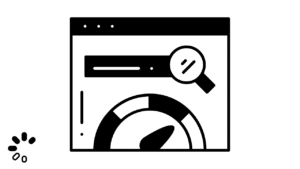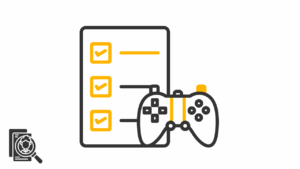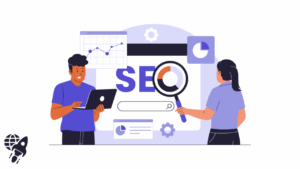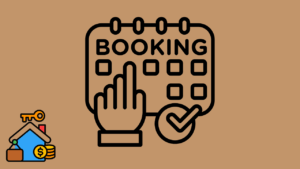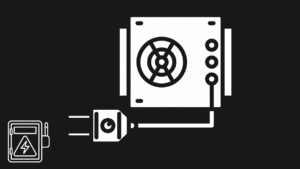When developing a website, there are common pitfalls that can result in legal consequences. Further, a website typically comes with exclusive rights you will want to enforce so they maintain their value. This includes preventing others from using your copyrighted work and trademarks without your permission. In this article, you’ll see the top 5 legal issues when developing a new website and learn how to avoid them.
You will want to protect your intellectual property from infringement and avoid infringing anyone else’s intellectual property rights. Infringement on either side can cost time, money, and energy to resolve. If you do discover that your rights have been infringed, then it is best to act quickly. Your rights will lose value if you do not enforce them.
Quick Reference Table You Can Use With Your Team
| Issue | What It Really Means | Biggest Risks | First Fix To Ship | Who Owns It |
|---|---|---|---|---|
| Ownership Of Code, Content, And Design | Who has the legal right to use, modify, and resell the finished work | Disputes over source files, missing rights to reuse templates or animations | Put a clear work made for hire clause or assignment clause in the contract; list deliverables and file formats | Founder, Project Lead, Legal |
| Third Party Assets And Open Source | Licenses for fonts, photos, video, icons, plugins, and libraries | Takedowns, unexpected fees, viral licenses that force code disclosure | Keep a living asset register with licenses; prefer permissive OSS; confirm commercial rights for media | Design Lead, Engineering Lead |
| Privacy, Cookies, And Data Protection | Collection and use of personal data, consent, and user rights | Fines, loss of user trust, bad data hygiene | Publish a plain privacy policy; add a consent banner that respects regional rules; minimize personal data | Product Owner, Legal, Data Lead |
| Accessibility Obligations | Making the site usable for people with disabilities, aligned to WCAG | Demand letters, lost customers, poor UX for many users | Meet WCAG 2.2 AA for top templates; add alt text, keyboard nav, captions, proper contrast | UX Lead, Engineering Lead |
| Trademarks, Domains, And Brand Use | Clear use of names, logos, and domains without confusion or infringement | Rebrands, domain disputes, takedowns of pages or ads | Search for conflicts before naming; register marks and key domains; follow brand usage rules | Founder, Marketing, Legal |
Infringement of Your Copyright: Legal Issues Developing a Website
One best practice to deter others from infringing the copyright in your website content is to use the copyright symbol ‘©’. So, to provide notice of your rights followed by the name of the copyright owner and the first year of publication. You do not need to register your copyright to use the copyright symbol.
Nonetheless, copyright registration can provide several benefits that may vary depending on the jurisdiction in which you register. In Canada, for example, copyright registration can serve as proof of copyright subsistence. So, ownership and may also give rise to additional remedies in a litigated dispute.
Infringement of Your Trademarks
Like with copyrighted material, you will want to protect any trademarks you may have. To provide public notice of your trademark use and discourage others from using your unregistered trademarks, you can use the ‘TM’ symbol. If you have registered your trademark, then you should use the ‘®’ symbol. However, do not use the ‘®’ symbol if the trademark is not ready. So, use in this manner may be a fraudulent misrepresentation in some jurisdictions.
Infringement of Someone Else’s Copyright: Legal Issues Developing a Website
Not only will you want to protect your own website content from copyright infringement. But you will also want to avoid infringing the copyright in the content of others. You should be careful about the content you display or make available on your website. By exercising caution, you can increase your chances of avoiding copyright disputes, which can often involve monetary demands and, in some cases, result in lawsuits.
Importantly, you should identify whether a license is in needs for each photo present on your website. If a license is important, then you will have to find the copyright owner and obtain their permission. This will likely require paying a licensing fee to the copyright owner to avoid legal issues developing a site.
After obtaining a license, you will need to pay close attention to its terms. A license to use copyrighted material will likely not grant you unrestricted access to or use of the material.
Infringement of Someone Else’s Trademark
You cannot use a trademark that belongs to someone else as your trademark without their permission. Also, you cannot adopt and use a trademark that is confusingly similar to someone else’s trademark. Confusion is important not only in view of the degree of resemblance between the marks themselves. But also in view of the similarity between the goods and services with which each mark is in use.
Thus, identical marks used in association with different goods or services may not be confusing with one another. Conversely, marks that differ in appearance or sound are used in association with identical goods or services may be confusing with one another.
Depending on the nature of your business, you may wish to use a trademark under license from the trademark owner. If you obtain such a license, then you will need to be mindful of the conditions of the licensing agreement. A license to use a trademark will not give you ownership of the intellectual property.
Copyright Ownership: Legal Issues Developing a Website
When working with a designer for your website. Or anyone else with whom you are contracting to create a copyrightable work. So, you should seek to ensure that you own the copyright going forward. Generally, an independent contractor who creates copyrighted material will be the first owner of the copyright. However, if you have hired someone to design your website, then you should seek to include a clause in your contract to assign ownership of the copyright to you. This will transfer ownership of the exclusive rights in the copyrighted material to you.

